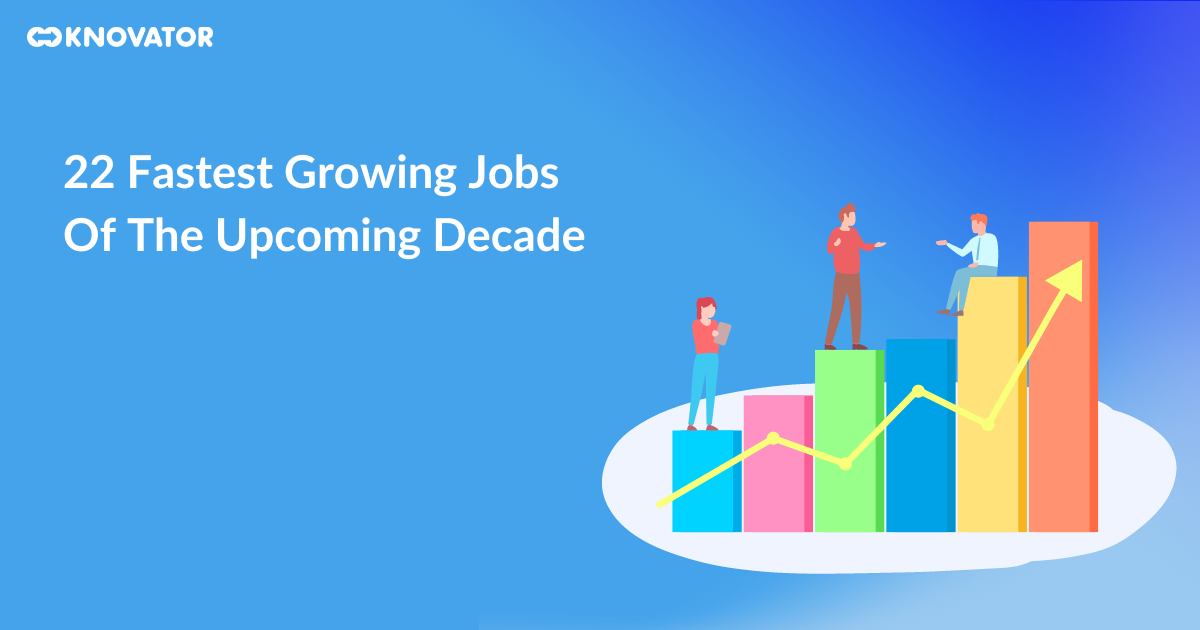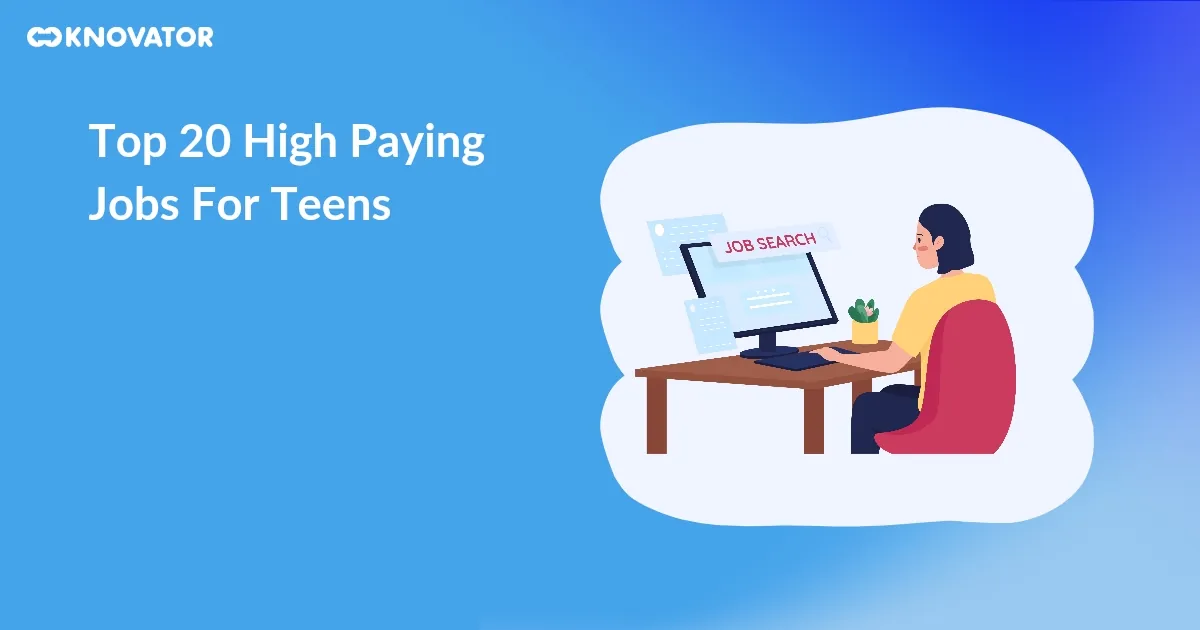Want to unlock the full potential of your workforce? In the ever-evolving landscape of today’s corporate world, prioritizing employee development is not just a choice; it’s a necessity.
To stay competitive, organizations must continually invest in their most valuable asset: their people.
Don’t know where to start? Lack of employee development can affect your business growth!
But don’t worry. In this dynamic blog post, we unveil the eight pivotal employee development areas that can transform your team and organization. Get ready to harness the power of employee development and set out on a journey to excel.
What are Employee Development Areas of Improvement?

Continuous development and improvement help employees in many good ways. First, it makes them better at what they already know and teaches them new concepts. Second, it keeps them interested and excited about their work by showing them they’re improving and accomplishing things. The process also helps them feel like they’re in control of their careers, giving them the power to improve themselves.
It pays off a lot when businesses invest in helping their employees in learning. Skilled and motivated workers do better at their jobs, work gets done faster, and the results are better quality.
Even though knowing technical things is important, focusing on them can stop you from growing differently. That’s why people care about other types of learning too. It means being good at communicating with others, working well together, and understanding others’ feelings.
Key Employee Development Areas of Improvement
Here are the key areas of improvement for employees,
1. Flexibility

Employees who can respond quickly and flexibly to changing circumstances are highly valued in today’s business environment.
Importance of Flexibility
Flexibility is like a superpower in today’s business world. It means being able to change and adjust when things don’t go as planned. Imagine you’re playing a game, and suddenly the rules change – if you’re flexible, you’ll quickly figure out a new way to play and still have fun.
Businesses these days face all sorts of surprises – new technology, unexpected competition, or sudden changes in the market. When employees are flexible, they can handle these surprises without getting stressed.
Adaptable employees bring a lot of benefits to the table. Firstly, they can switch between tasks easily. It helps the company because things can keep moving even if there’s a sudden change in plans.
Secondly, flexible employees are great at teamwork. Imagine you’re building a big puzzle but suddenly realize a piece is missing. Flexible people are like puzzle experts – they can find a solution even if some pieces are missing. They help the team work together and still complete the puzzle, even if it’s slightly different from what was expected.
Lastly, flexible employees are open to new challenges and feel excited about learning and adapting. This energy spreads to others in the workplace, creating a positive and productive atmosphere.
Sub-skills of Flexibility
Now, let’s examine the important pieces that make up the path to becoming flexible, and then we’ll talk about what you need to do to make it happen.
Ability to learn new skills
In a world where businesses keep growing, staying caught up is crucial. To stay ahead, employees should be open to learning new things. It means being ready to learn and grow all the time.
Make sure learning becomes a regular part of each day; let everyone learn and support each other.
Adaptability
Learning new skills and knowing more is great, but what’s even better is using what you know in different situations. It’s like having many tools and knowing when and how to use each. If one person doesn’t know how to solve a problem, others can help. Teamwork usually leads to solutions.
Improvisation
Even if you plan things well, there are times when you have to use your creativity to make things work.
Do you have a new technology, marketing idea, or design that the company has yet to use?
Don’t worry about trying new things – tell your employees to use their knowledge and come up with a solution that might not be perfect but is their best guess.
Ability to respond to new problems or issues
It is when companies use their flexibility power in their everyday work.
New problems will always arise, but instead of stopping everything, flexible employees will find a solution – fast and without any problems.
Training for Flexibility
Here are some useful ways to help employees become more flexible:
- Cross-Training: Encourage employees to learn about different jobs in the company. This way, others can help if someone is absent or busy.
- Changing Roles or Tasks: Sometimes, let employees do different things than usual. It helps them learn new skills and be ready for changes.
- Business Trips: Sending employees to different places for work helps them adapt to new environments and solve problems on the go.
- Involving Employees in Decision-Making: When employees have a say in decisions, they feel more connected to the company and are more willing to adapt to changes.
- Understanding the Big Picture: Explain how each employee’s work fits the company’s goals. It helps them see why being flexible is important.
- Support Networks: Create groups where employees can help and learn from each other. It builds confidence and a sense of unity.
Being flexible isn’t just about being good at different tasks; it’s also about being open to change and finding solutions when things don’t go as planned. Using these methods, you can help your employees become flexible superheroes in the workplace!
2. Communication Skills

Effective communication is like a secret weapon in the professional world. This section will dive into why communication skills are important and how they are vital to successful organizations.
Importance of Communication Skills
Communication skills are important for many reasons. First, they help build strong relationships among coworkers. When employees can talk openly and listen well, you create a positive atmosphere where everyone feels valued. Good communication also boosts teamwork. It’s like playing on a team – if everyone knows the plan and talks to each other, the chances of winning are higher.
Furthermore, clear communication prevents misunderstandings. Have you ever played the telephone game? In that game, a message changes as it’s passed from person to person. Information needs to be communicated clearly in work to avoid mistakes and confusion.
Communication skills are like a superpower that helps everyone work together smoothly. They prevent problems and make workplaces happier.
Sub-skills of Communication Skills
The skills we’ll classify under “communication” and the numerous approaches to improve them are listed below.
Teamwork
Encourage working together as a group and sharing tasks on projects. Do fun things together, like outings or team-building activities, and set goals everyone can work on.
Use “we” when discussing getting things done instead of saying what “I” can do.
Collaboration
We all have different ideas and skills. Use this by getting people from different areas to work together. This way, you get a mix of good ideas.
Interpersonal Skills
It means being good at listening and talking nicely. It is about taking charge when needed and leading well. Mostly, motivate others and listen to what they have to say.
Empathy
Help employees understand that before saying something negative, they should think about how the other person might feel.
Understanding why someone might have a different opinion or be having a hard time is essential.
Listening Skills
Enable employees to pay attention to what the person is saying and be interested and involved in the conversation, not just waiting for their chance to talk.
Public Speaking
Getting employees to talk in front of a group can be hard. Start with that, then practice in smaller groups or one-on-one.
Developing Communication Skills
Practical Ways to Improve Communication
- Frequent Meetings: Regular meetings allow everyone to talk and share ideas. It helps in practicing how to express thoughts clearly.
- Formal Training: Providing official training sessions helps employees learn how to communicate in different situations.
- Group Projects: Working in teams teaches people how to coordinate and share information effectively.
- Cross-Functional Workshops: Workshops involving different teams help understand diverse viewpoints and improve communication skills.
- Feedback Sessions: Giving and receiving feedback helps individuals see what they’re doing well and what they can improve in their communication.
- Self-Reflection: Thinking about how they communicate and what they can do better is a powerful tool for self-improvement.
By using these methods, you can help your employees become great communicators. Good communication helps everyone work together well and creates a happier workplace.
3. Conflict Resolution, Tactfulness, Work Ethic

Tactfulness is about saying and doing things nicely. Just like one wouldn’t want to hurt a friend’s feelings, one wouldn’t want to hurt a colleague’s feelings. It’s important to communicate clearly without upsetting others.
Having a good work ethic means employees doing their job well and being honest. It’s doing tasks well at work and not lying about it that builds trust and respect among colleagues.
These skills are key to a successful workplace. When conflicts are resolved and people communicate kindly, the atmosphere stays positive. The workplace becomes trustworthy when everyone does their job well and acts ethically.
Remember, having a good workplace means working together, being kind, and employees doing their job well. By practicing conflict resolution, tactfulness, and work ethics, a workplace can get even better and happier!
4. Leadership Skills

Remarkable leaders have the potential to elevate a company above its rivals. In contrast, poor leaders can create a demotivating work environment.
Importance of Leadership Skills
Let’s explore these qualities that are commonly observed in accomplished leaders:
- Effective Management: Beyond giving orders, strong management involves understanding the team, motivating them, and ensuring smooth operations.
- Self-Confidence: Inspiring confidence in others starts with being confident in oneself. Strike the balance between confidence and humility.
- Strategic Thinking: Anticipating future moves and planning for various scenarios lays the groundwork for team success.
- Problem-Solving: Swiftly identify and address issues. Leaders draw from past successes but also innovate to tackle new challenges.
- Motivation: Some individuals possess a natural ability to inspire others. Observing how they communicate and uplift others can help.
- Decision Making: Make timely and confident decisions based on the best available information, avoiding indecision.
- Team Management: Whether a small or large team, leaders balance time, personalities, responsibilities, and objectives to ensure progress.
- Team Leadership: Employees work for a manager but follow a leader. Leadership goes beyond managing.
- Problem Identification: Experienced leaders can detect issues before they escalate, distinguishing between problems and minor hiccups.
- Strategic Development: Effective strategies streamline workflows and enhance efficiency.
- Developmental Planning: Transforming strategies into actionable plans with goals and timelines ensures progress.
These soft skills collectively define effective leadership.
Developing Leadership Skills
Here are some practical methods to help employees become better leaders. These approaches include mentoring, taking formal training, volunteering, joining task forces and working groups, and changing how responsibility is managed.
- Mentoring: Learning from experienced leaders helps employees understand effective leadership practices and gain valuable insights.
- Formal Training: Enrolling employees in leadership training programs can equip them with essential tools and knowledge to lead effectively.
- Volunteering: Assigning leadership roles in volunteer activities outside work allows employees to practice leadership in different contexts.
- Responsibility Shift: Gradually increasing responsibility and decision-making authority allows employees to step into leadership roles progressively.
Utilizing these approaches can help your employees develop strong leadership skills. Remember, effective leaders create positive impacts on teams and organizations, driving success and growth. So, let’s start building those leadership skills!
5. Organizational Skills

Importance of Organizational Skills
Imagine juggling multiple balls in the air. Now, think of those balls as tasks and responsibilities at work. Organizational skills are like having a magical ability to juggle everything effectively without dropping anything.
Balancing tasks is crucial for a productive workplace. When employees are organized, they can meet deadlines, remember important details, and stay on top of your work.
Organizational skills help reduce stress and chaos. When employees know what needs to be done and have a plan, they feel more in control.
Moreover, being organized contributes to better teamwork. If an employee is responsible for a project, keeping things organized means the team knows what’s happening and can work together more smoothly. Organizational skills also show that a person is dependable.
To improve organizational skills, ask employees to make to-do lists, set priorities, and use tools like calendars or apps to stay organized. Break big tasks into smaller steps, and avoid procrastination.
Sub-skills of Organizational Skills
Prioritization
Choosing what to do first is about making sure everything fits well together. It is about finding out what needs to be done early to make everything else work smoothly?
Time Management
It is about being smart with time. Employees can make the most of their day by creating good routines and finding ways to work better.
Managing Appointments
Nobody wins when meetings are missed, or appointments are delayed. Encourage employees to give each meeting enough time and add extra time if things take longer.
Productivity
It isn’t just about working; it’s about getting things done. If someone finishes tasks faster, ask them to share tips with others to improve the team’s efficiency.
Scheduling
Details are crucial here. Get employees to use a clear format to answer the who, when, where, and what of each event and remember travel time and possible clashes.
Developing Organizational Skills
Here are some practical methods to help employees become better at the organization. These approaches include giving clear guidance, promoting teamwork, delegating tasks, offering formal training, tracking and analyzing time, and using technology effectively.
Ways to Improve Organizational Skills
- Clear Direction: Providing clear instructions and goals helps employees know what needs to be done and how to organize their tasks.
- Collaboration: Encouraging teamwork allows employees to pool their organizational strengths and learn from each other’s methods.
- Delegation: Learning to delegate tasks effectively removes pressure and allows individuals to focus on what they do best.
- Formal Training: Enrolling in courses targeting organizational skills equips employees with valuable tools and techniques.
- Time Tracking and Analysis: Keeping track of how time is spent on different tasks helps identify areas for improvement and more efficient allocation of time.
- Technology Utilization: Technology tools like calendars, task management apps, and project management software aid in organizing and managing tasks.
By incorporating these strategies, you can help employees enhance their organizational skills. Remember, effective organization boosts individual productivity and contributes to a well-structured and efficient workplace.
6. Creativity Skills

Importance of Creativity Skills
Imagine a world where everything is the same, and nothing new ever happens. That’s a world without creativity. Creativity is like a spark that ignites new ideas, fresh perspectives, and innovative solutions. In a workplace, creativity is the fuel that propels organizations forward.
It encourages employees to think outside the box, experiment with new concepts, and explore uncharted territories. Creative minds are like artists who paint with ideas, creating masterpieces that shape the organization’s future.
When employees are encouraged to think creatively, they develop new ways to solve problems, enhance processes, and invent groundbreaking products or services.
Moreover, creativity breeds collaboration. When different minds join forces to brainstorm, magic happens. Ideas bounce off one another, and the collective genius leads to innovations that wouldn’t have been possible otherwise.
Sub-skills of Creativity Skills
Let’s unravel the key sub-skills that contribute to fostering creativity in your team:
- Creative Thinking: The ability to approach problems and challenges with fresh and unconventional viewpoints.
- Brainstorming: Collaboratively generating many ideas without judgment to uncover innovative solutions.
- Conceptualization: Translating abstract ideas into tangible plans and strategies.
- Critical Thinking: Evaluating ideas critically to determine their feasibility and potential impact.
- Curiosity: Being open to exploring new concepts, asking questions, and seeking to understand deeply.
- Foresight: Anticipating future trends and possibilities, enabling proactive decision-making.
- Identifying Patterns: Recognizing connections and patterns across seemingly unrelated information.
Developing Creativity Skills
Fostering creativity in employees is like nurturing a garden of innovation. Here are practical ways to help your team blossom with imaginative thinking:
- Encourage Idea Sharing: Make an environment where everyone feels welcome to share their thoughts, no matter how outlandish.
- Diverse Perspectives: Embrace diversity in your team. Different backgrounds and viewpoints lead to a wider range of creative ideas.
- Brainstorming Sessions: Organize regular brainstorming sessions where team members can freely share and build upon ideas.
- Creative Challenges: Pose thought-provoking challenges that encourage employees to develop unique solutions.
- Cross-Functional Collaboration: Encourage collaboration across departments. Fresh perspectives from different areas often lead to innovative solutions.
7. Strong Work Ethics

Importance of Having Strong Work Ethics
Imagine a workplace where everyone does their best, respects one another, and takes pride in their work. That’s the magic of strong work ethics. It’s like the foundation of a strong building – without it, things might collapse.
Strong work ethics mean doing what’s right, even when no one is watching. It’s about being honest, dependable, and giving your best effort. When employees uphold high ethical standards, it creates a positive environment where trust thrives.
Developing Work Ethics
Here’s how you can set an example for your employees & develop and nurture work ethics:
- Honesty: Always be truthful in your actions and words. Honesty forms the cornerstone of strong ethics.
- Reliability: Keep your promises and meet your commitments. Being dependable earns respect from colleagues and supervisors.
- Punctuality: Show respect for others’ time by being punctual. Arriving on time shows dedication and professionalism.
- Accountability: Take ownership of your actions, whether successes or mistakes. Learning from mistakes contributes to growth.
- Respect: Give respect to everyone, regardless of their position. A respectful attitude fosters a harmonious work environment.
8. Learning New Skills

Importance of Learning New Skills
Learning new skills keeps you relevant and adaptable and it is a must for your employees.
Learning new skills is a must in a rapidly changing work environment. It enhances an individual’s versatility, making them valuable to the organization and ensuring personal growth.
Learning new skills isn’t just about staying up-to-date; it’s about expanding horizons. It opens doors to opportunities and helps one tackle challenges with confidence.
Developing New Skills
Starting a journey to learn new skills requires dedication and enthusiasm. Here’s what your employees can do:
- Identify Goals: Determine what skills they want to learn and how they align with their personal and career objectives.
- Research: Investigate resources available for learning the chosen skill. It could include online courses, workshops, books, or mentors.
- Plan: Create a structured plan with milestones to track progress. Having a roadmap increases focus and motivation.
- Allocate Time: Dedicate regular time to learn the new skill. Consistency is key to effective skill development.
- Practice: Put theory into practice. Apply what they’re learning in real-life scenarios to reinforce the understanding.
- Seek Feedback: Ask for feedback from experts or peers. Constructive feedback helps refine skills.
Your Path to Success: Embrace These 8 Areas for Growth!
We’ve delved into the eight key areas of employee development, unveiling the pathways to unlocking the full potential of your team. From leadership and communication to technical proficiency and adaptability, these areas are the pillars of success.
But remember, it’s not just about your employees; it’s about your organization’s future.
By investing in their growth and fostering a culture of continuous improvement, you’re not just shaping better employees; you’re shaping a brighter future for your business. So, take these insights to heart and watch your organization soar to new heights.







